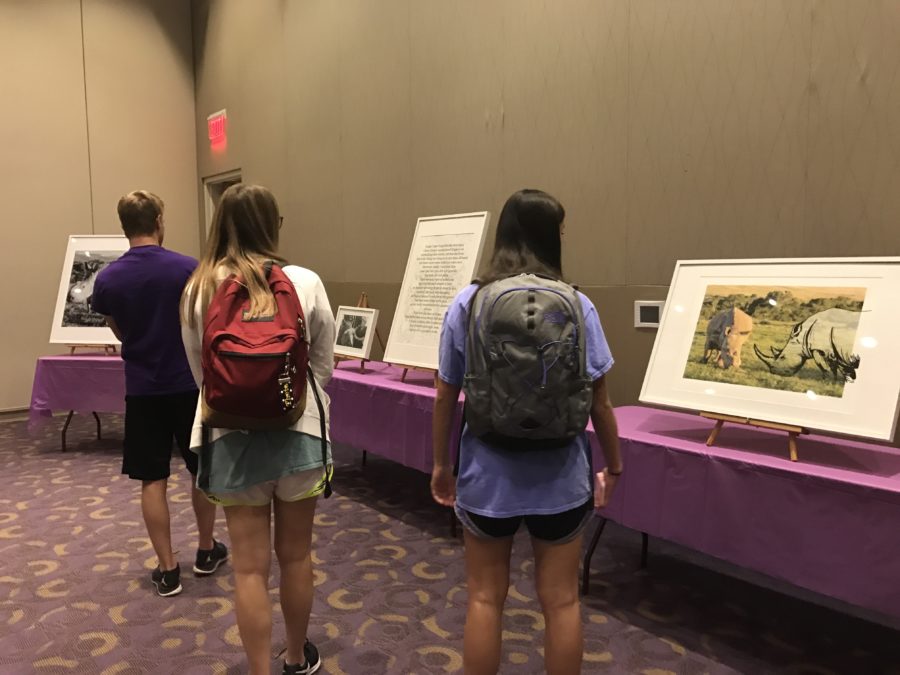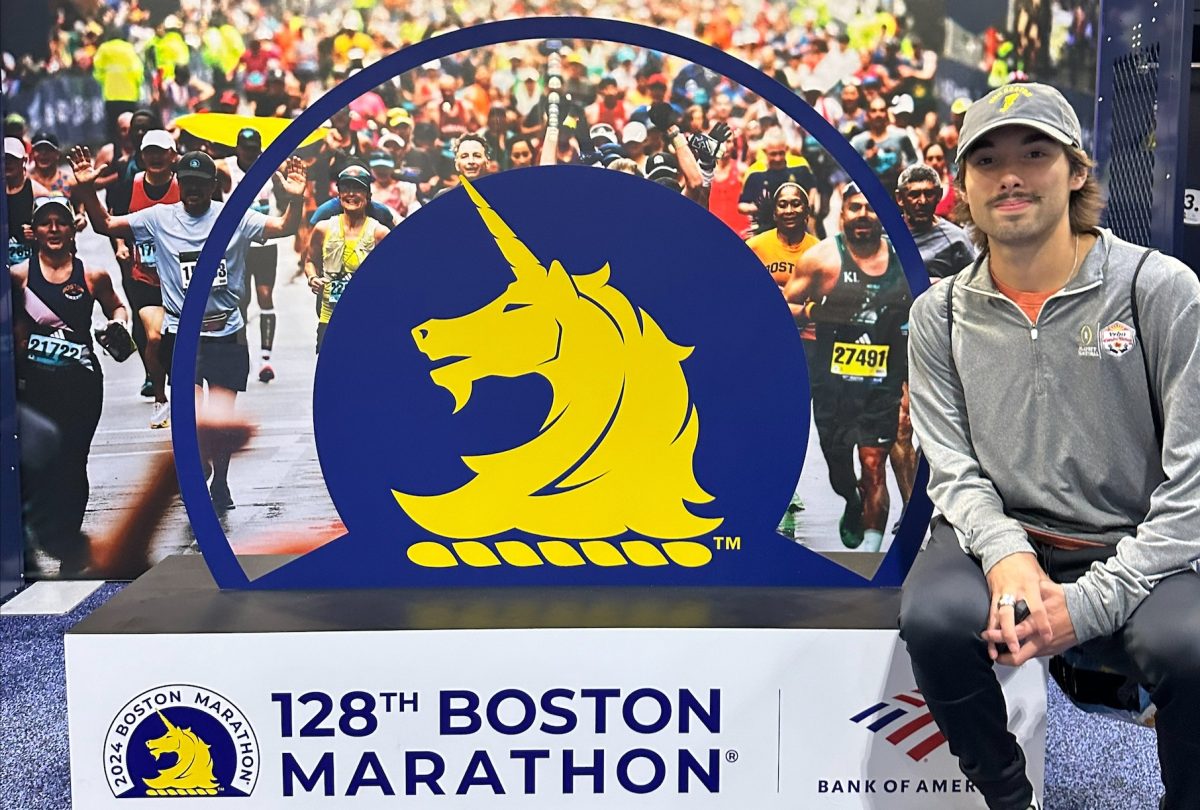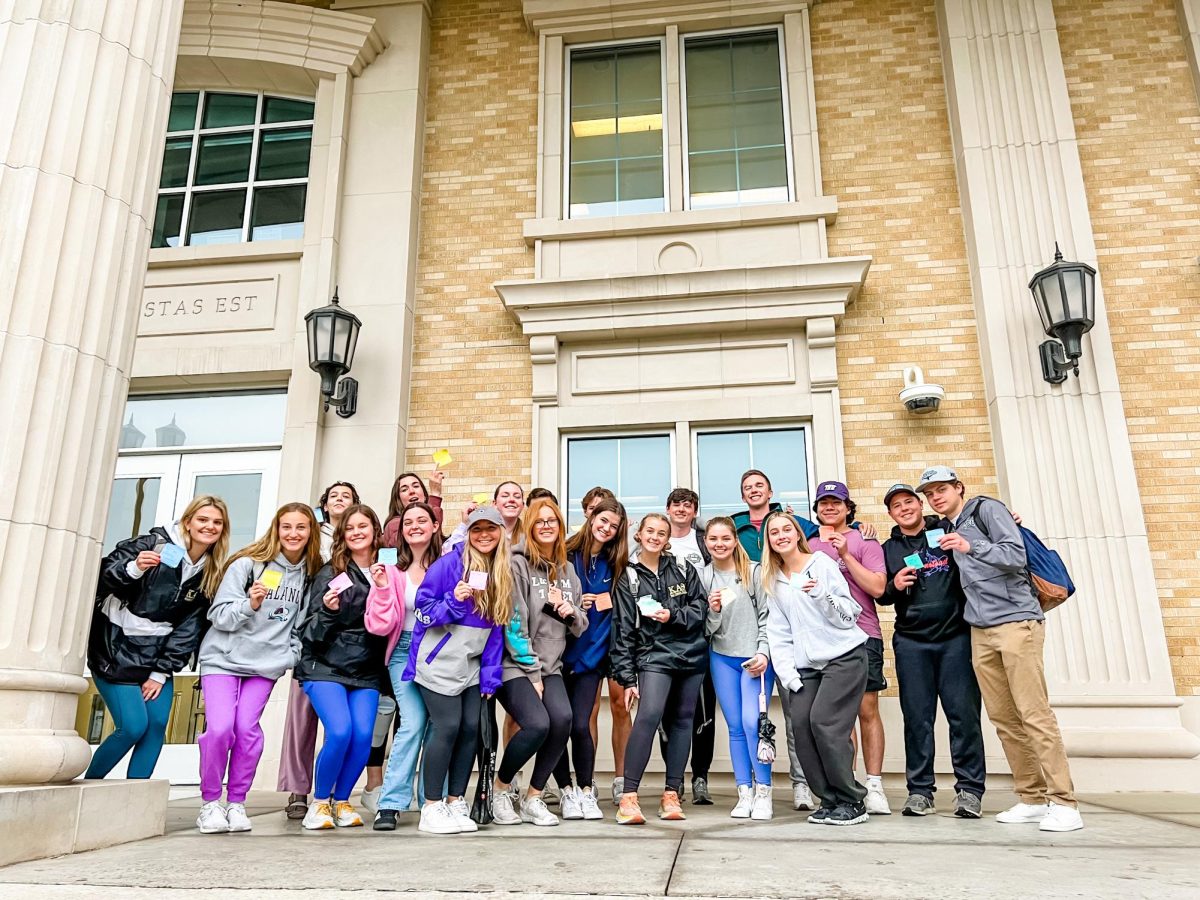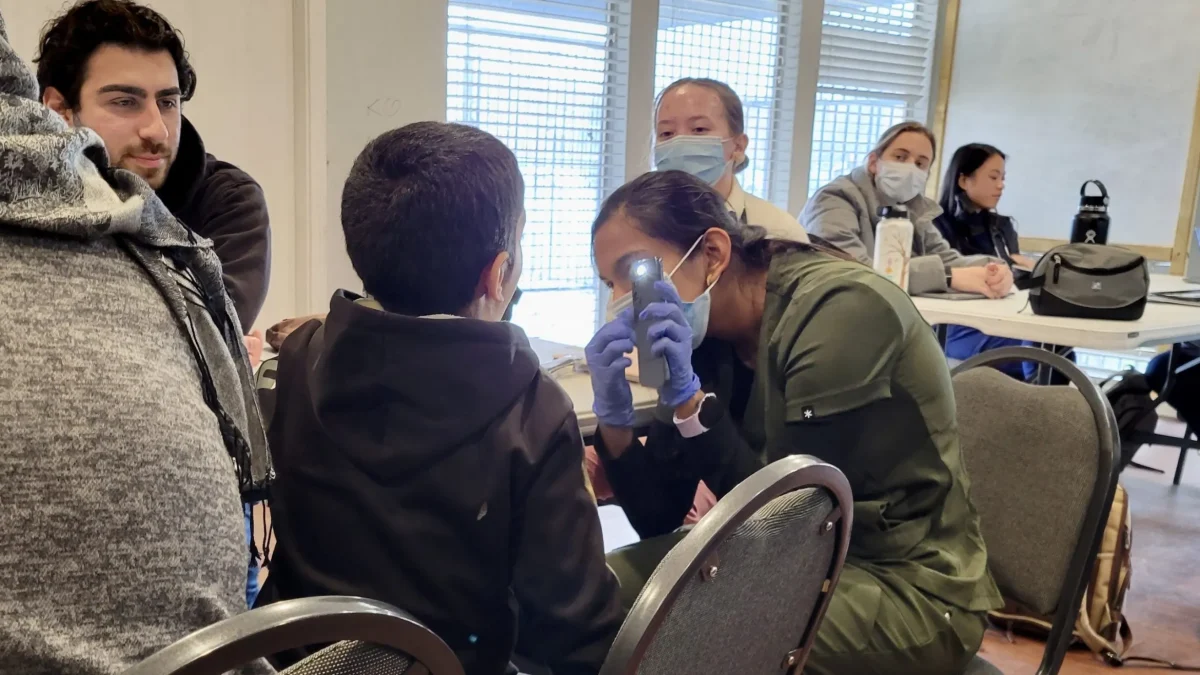The Vietnamese Student Association hosted the “Born with Horn” rhino interactive tour event Tuesday in the Brown-Lupton University Union ballroom.
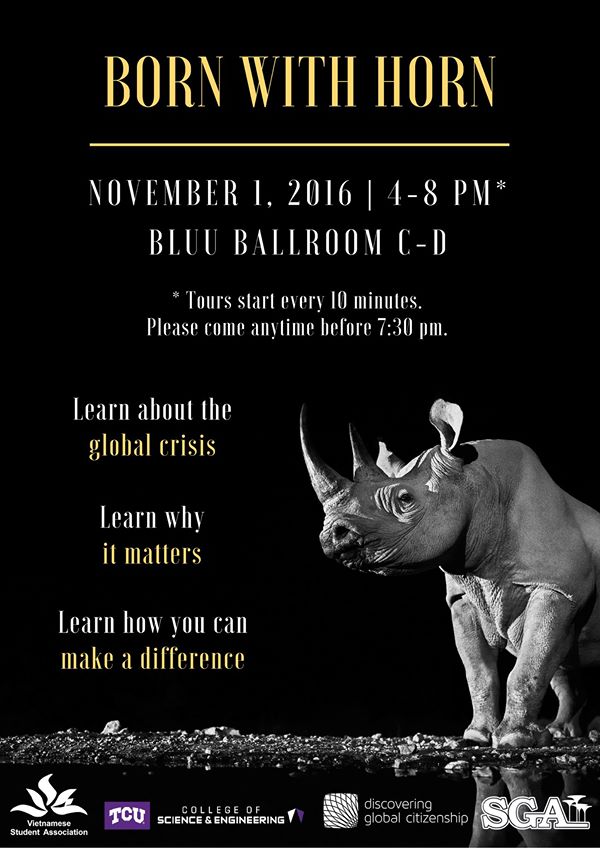
The purpose of the event was to educate students and faculty about the global rhino crisis in South Africa and the illegal trade of the rhinoceros horn in Vietnam.
VSA designed the event to have five interactive rooms that students could walk through.
Nghi Tran, public relations chair of VSA, said the issue is close to home for her and believes it is important to raise awareness for the cause.
“We need people to understand the crisis and how they can help,” Tran said.
The 20-minute tour started in room one, where a film was playing that followed a rhino named Geza who was dehorned by poachers. The graphic images of Geza show her mutilated, bloody face after the poachers cut out her horn. At the end of the film, the narrator revealed that most illegally poached rhinos are unable to recover from the wounds.
Room two was an overview of the crisis, displaying the reasons horns are illegally traded and purchased in Vietnam. These reasons include health benefits and class status. Also shown in the room were statistics of rhino poaching over the past decade, global attempts at saving the rhinos and the descriptions of the five different rhino species.
The next room focused on consumption of the horn in Vietnam. Large infographics displayed the medical uses of rhino horns in Vietnam. These uses include cancer treatment, headaches, impotence, strep throat and numerous different diseases. There was also an interactive board where students could guess certain information about the rhinos. This included how much a rhino horn is worth in Vietnam and the purposes for which rhino horns are used.
Room four showed individual and group efforts in South Africa and Vietnam to stop the crisis. VSA displayed a film following multiple studies abroad programs to South Africa for rhino rehabilitation. There were also infographic boards displaying the different organizations that have led the effort to stop the crisis including the Black Mamba Anti-Poaching Unit (APU), the Chipembere Rhino Foundation and the TCU Rhino Initiative.
“What TCU students can do specifically is to participate in the fundraising events we have and raise awareness so this crisis can reach more people who would have the financial ability to help it indirectly,” Tran said. “Furthermore they can get involved with the study abroad program or even get involved in research that would help the crisis in South Africa and Vietnam.”
The last room was home to TCU’s blueprint on the rhino crises. Here, students could learn about TCU’s involvement and the start of the initiative. Also displayed were pictures from the South Africa abroad program, fliers from the different fundraisers TCU has held and a flier for the upcoming 2017 study abroad program to South Africa.
First-year business major Ryan Clark said he was affected by the tour.
“I feel kind of depressed,” Clark said. “Seeing more specific examples and in-depth details of poaching and how it’s changing South Africa is difficult, but at the same time, really interesting and informing.”
More information about the TCU Rhino Initiative can be found at rhino.tcu.edu



